SUMMARY
This is AI generated summarization, which may have errors. For context, always refer to the full article.
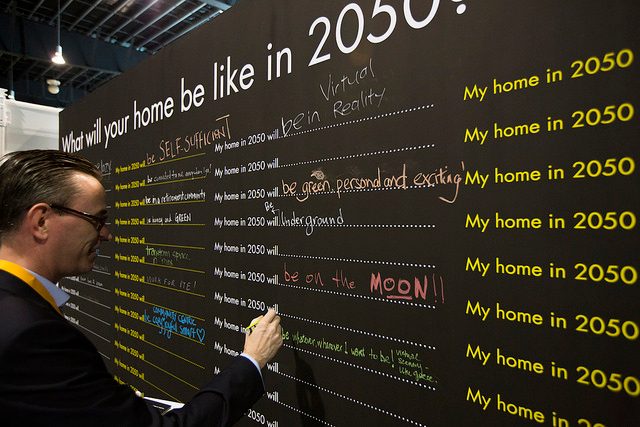
MANILA, Philippines – The 4th Powering Progress Together forum took place in Singapore last March 16 at the Changi Exhibition Centre to kick off the Make the Future Singapore festival.
A mix of industry experts, members from the academia, government leaders, partners in the business sectors, as well as media representatives were present. (READ: Powering Progress Together 2017: Cleaner Energy Moves Asia)
John Abbott, Downstream Director, Royal Dutch Shell, opened the forum giving a comprehensive introduction on this year’s theme, “Cleaner Moves Asia,” which focused on Asia’s energy dilemma and the challenge to find sustainable ways to produce energy for a better life and healthy planet.
Abbott gave a big picture of Asia’s energy dilemma, saying most of the growth from energy demands will come from developing countries outside the OECD (Organization for Economic Cooperation and Development). But the challenge comes in reducing C02 emissions as we produce more energy to meet this growing demand.
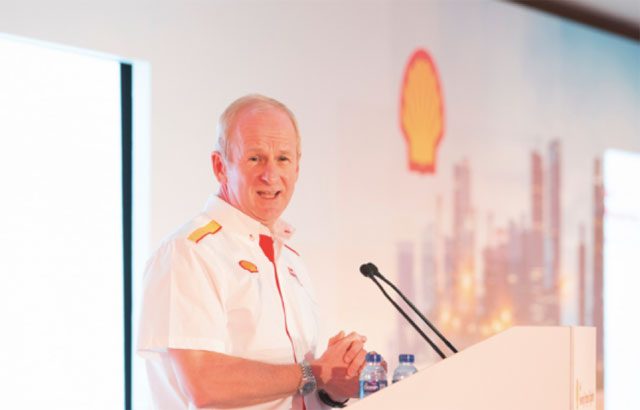
“Changes in energy use will need to happen in virtually every part of society in which we operate and in which we live. There will be and should be no exceptions,” he said. “Governments, academia, consumers and companies like Shell will need to work together to meet this enormous challenge in a highly collaborative way.”
Watch his full speech here.
Cleaner, better energy
A panel discussion brought together leading experts and leaders in technology, government and energy, moderated by Marc Carrel-Billiard, Senior Managing Director of Accenture Labs.
Panelists included:
- Dr. Alvin Yeo, Director, Industry Development Department, Energy Market Authority
- Visal Leng, President, GE Oil & Gas, Asia Pacific
- Kong-Meng Koh, General Manager & Managing Director, South East Asia & Korea, HP Inc.
- Mark Gainsborough, Executive Vice President, New Energies, Royal Dutch, Shell
Different perspectives and ideas from each panelist gave the audience a better understanding of what each sector is doing to solve Asia’s energy dilemma and how exploring new business models and collaboration can help find solutions.
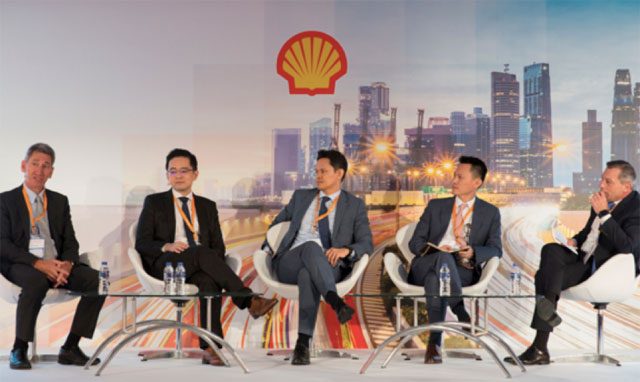
Yeo said, “In South East Asia, the growth [of energy production] will increase by nearly 80% over the next 5 years and with that you will see carbon emissions raising by maybe 2.3%.” But he adds that there are a lot of companies in Singapore innovating and introducing new technologies to find sustainable ways to produce energy, and he hopes that these ideas can be further developed to help other Asian regions as well.
Gainsborough said that there is no one solution to this problem. “If you’ve got a bigger challenge of providing the world with the energy it needs at a much lower environmental impact, you need to deploy everything that you’ve got,” he said.
When asked what was that one thing that he would do to solve this problem, he answered, “My one thing is to make people understand that there is no one thing.”
Overall, all panelists agreed that new partnerships will help us find the right solution.
“I think that we can’t just do it by ourselves,” Leng said. “The key thing for cleaner energy is cost, so we are working hard to lower cost. The reality is cleaner energy is more expensive than traditional energy.” He continued to stress on the importance of working in partnership with the government, the consumers and the rest of the ecosystem to make finding solutions possible.
In the future, many things are possible given our technology and innovations. Kong Meng shared an ideal future of his that he believes can be achieved if we continue to invest in technology.
“I dream of flying on an environmental friendly plane, buying carbon credits before I fly, and take my driverless vehicle to the airport back to my house and do the same thing again this morning as I attend this conference,” he said.
Carrel-Billiard closed the discussion sharing how education and helping people, especially the new generation, understand what is at stake are very important.
“Education will help convince and help people pull together to do something amazing. The same way they pulled together this panel together,” he said.
Watch the full panel discussion here.
Envisioning the world by 2050
The festival and forum were geared towards inspiring innovators of all ages to build their dream cities in the future.

Students and millennial start-ups such as MotionECO and Capture Mobility were among the forum’s most active delegates.
Aside from the main panel sessions, activities throughout the day encouraged conversation, creativity, and critical thinking among the participants.

A highlight of the forum was an exhibit dubbed The “Container of Possibilities: The Twenty Fifty.” It featured a modern Asian concept home of the future. The 20-foot shipping container showcases innovations that make the home energy-efficient, technology-enabling and connected. Visitors of the exhibit could also pen their views on what homes could look like in 30 years’ time.
In the coming months, the exhibit will tour around other Asian cities, including Indonesia and Thailand.
The winners of Shell’s Imagine The Future Students Scenario Making Competition also presented two scenarios on how we could be living by the year 2050. Other ideas like sharing energy via mobile, virtual reality and efficient public transportation powered by automatic vehicles and smart utilities were also shown.
An interactive performance by the Tapestry Playback Theatre allowed the audience to share ideas while the group interpreted it. Take a look at their performances here.
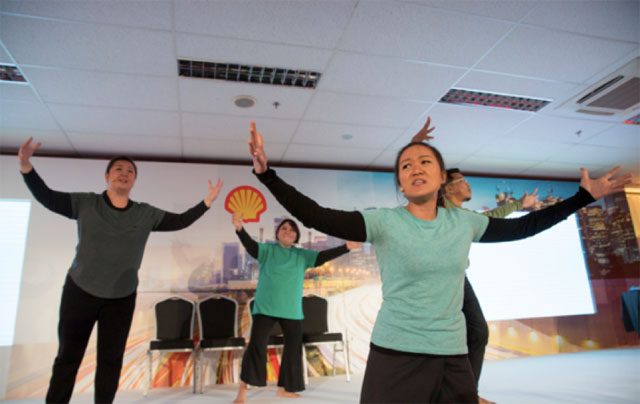
The discussions prompted the audience not just to understand the challenges and issues that we have to solve today, but also to look forward to a better future powered by clean energy.
To close the forum, Goh Swee Chen, Chairman of Shell Singapore, summarized key points of the forum and also shared her own thoughts on this tough dilemma that Asia and the world is facing. Watch her full speech here.
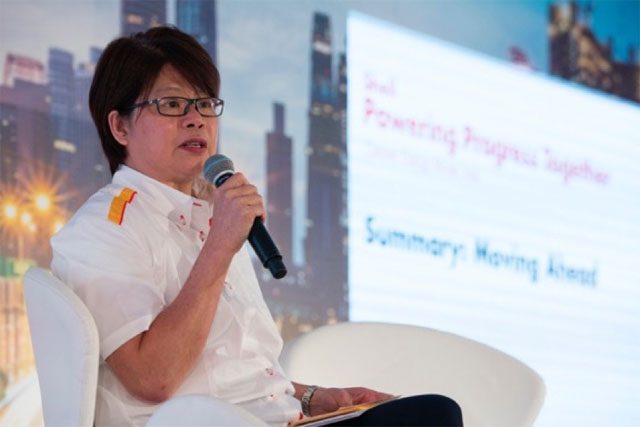
“This is a complex problem. There are so many external factors and emotional factors to consider. This is why we believe events such as this gives us the platform and the ability to bring people together with the bright ideas to collaborate. We can slowly but surely develop the solutions that’s going to make a meaningful impact to this world that we live in,” she said.
Watch the the full forum in the video up top. Click on the upper left corner to see all 4 segments. – Rappler.com
Add a comment
How does this make you feel?

There are no comments yet. Add your comment to start the conversation.